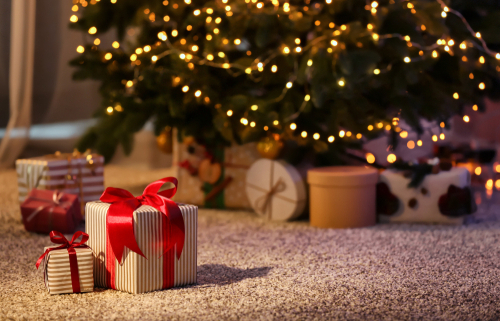Christmas traditions around the world
Christmas is the biggest holiday in the world, but it’s not celebrated everywhere. Some countries celebrate other holidays instead of or in addition to Christmas. Below we’ve compiled a list of traditions from around the globe that we have enjoyed learning about thanks to our freelance translators across the world!
In Romania, they believe that evil spirits lurk on Christmas Eve. They go through a process to ward off spirits, or “colinde.”
Romanians sing traditional songs to keep the spirits away and celebrate the birth of Jesus. The tradition goes back hundreds of years as people used music as a way to keep evil spirits away from their homes. The songs are full of symbols that represent protection: bells (a symbol of protection), crosses (protection against evil), garlic (which wards off evil spirits) and other symbols that ward off evil spirits.
In Denmark, children leave their shoes out on windowsills or patios so that St. Nicholas can fill them with candy and small gifts.
The tradition dates back to the 19th century when shoemakers would leave boots outside for St. Nicholas to fill with gifts for their customers’ children.
Today, Danish parents often use red-and-white striped stockings instead of shoes to hang on their windowsills and balconies. In many families, parents also dress up as Santa Claus on the 5th December and go from house to house collecting donations for charity organisations.
In the Netherlands, Sinterklaas and his helpers, Zwarte Pieten, arrive by steamboat from Spain on the 5th December.
In the Netherlands, Sinterklaas and his helpers, Zwarte Pieten (elves), arrive by steamboat from Spain on the 5th December. Their arrival is celebrated with songs, parades and “pepernoten” cookies.
According to folklore, Zwarte Pieten can fly because they eat so many carrots that their bodies become light enough to float through the air. They are often portrayed with red lips, curly hair and gold earrings; while some modern depictions show them wearing colourful fabrics and tall hats shaped like pots or cotton candy cones covered with sweets and ribbons!
In the Philippines, a Noche Buena feast takes place after midnight mass on the 24th December to celebrate Christmas Day.
The family would gather for a meal of lechon (roasted pig), ham and turkey, grilled fish and chicken, rice cakes, fresh fruits and sweets like bibingka (rice cake with coconut milk) or kutsinta (rice flour balls made from sweet potato).
The feast is served on a table covered with banana leaves, which symbolises abundance and good luck for the coming year.
In Russia, the New Year is a bigger holiday than Christmas. Santa Claus is called Grandfather Frost and he brings presents to children on New Year’s Eve.
In Russia, the New Year is a bigger holiday than Christmas. Santa Claus is called Grandfather Frost and he brings presents to children on New Year’s Eve. Grandfather Frost is not a real person, but a symbol of good luck and happiness.
In Russia and other countries that use the Cyrillic alphabet (such as Ukraine), the 31st December is called St Sylvester’s day or Kupala Night – it’s considered good luck if you eat pancakes on this night!
In Mexico, they celebrate Las Posadas from the 16th-24th December. Posadas means lodgings or accommodations in Spanish and symbolises Joseph’s search for lodging before Jesus’ birth in Bethlehem.
In Mexico, they celebrate Las Posadas from the 16th-24th December. Posadas means lodgings or accommodations in Spanish and symbolises Joseph’s search for lodging before Jesus’ birth in Bethlehem.
The celebration consists of singing and dancing through the streets of towns to represent Mary and Joseph’s journey from Nazareth to Bethlehem. Participants dress up as Mary, Joseph, angels and shepherds while singing traditional songs along the way.
Christmas is a time for family, friends and traditions. The holiday is celebrated in many ways, but one thing remains constant: it is a time to gather with loved ones and celebrate the joy of the season. From everyone at TW Languages, we hope you have a wonderful festive holiday.



